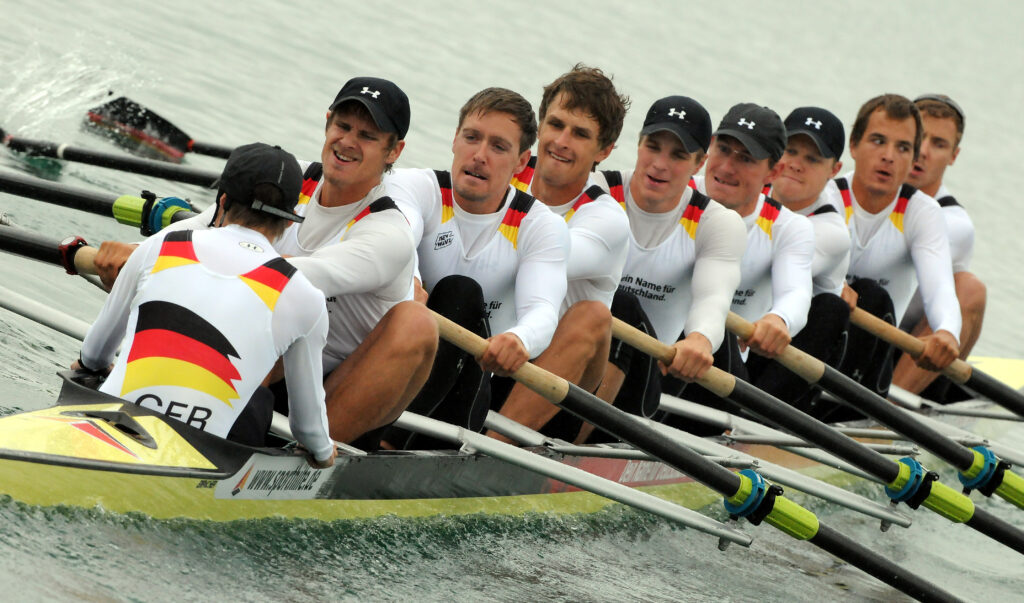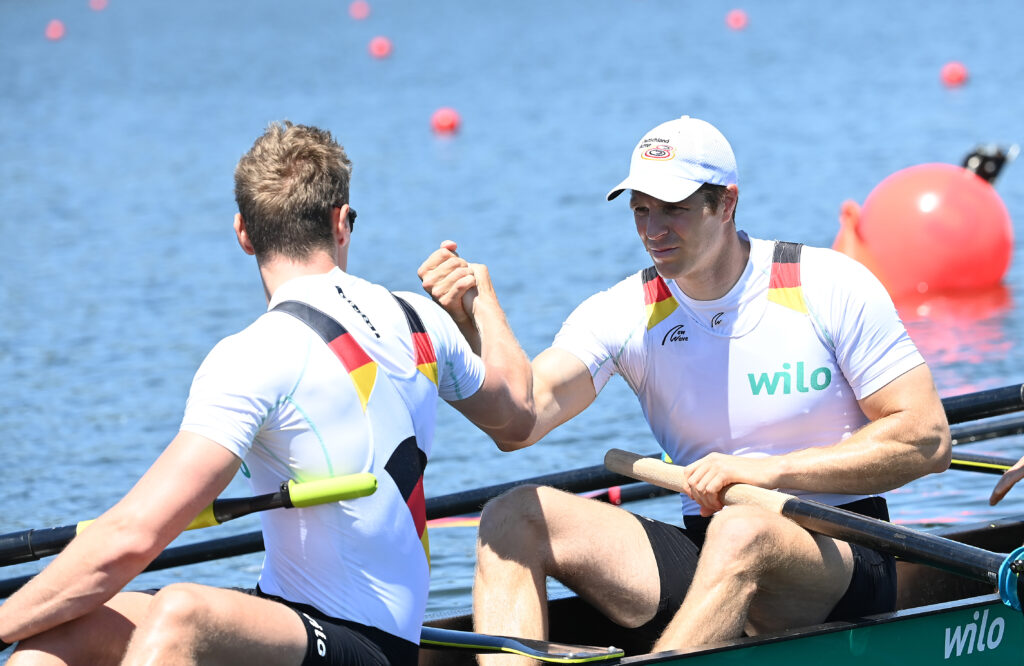
18 Nov 2024
Richard Schmidt, the beating heart of the Deutschland Achter
Copy thanks to Martin Cross
For many, the eight represents the ultimate expression of teamwork. Nine individuals sublimate their technique, effort, and desire to the cause of their team. Usually, if an individual gets recognition it often is the stroke: Roland Barr, Nico Rienks and Simona Radis are just some of the ‘stars’ that have stroked their crews to Olympic and world championship gold.
But sometimes the eight has a beating heart; a guiding light; a role model who sets the tone for their crew. And that person may not always sit at stroke. Richard Schmidt won Olympic gold rowing in the five seat of Germany’s 2012 eight. He won three of his six world championship gold medals from the seven seat. Add in two Olympic silver medals and three world championship second places, and it is very fitting that Schmidt’s contribution to the legendary Deutschland Achter’s incredible success between 2009 and 2021 has secured him the 2024 Thomas Keller medal.
Max Planner, Schmidt’s crew mate in 2017 and 2018 put it simply. “Looking back, I would say he’s the Cristiano Ronaldo of rowing. Always pushing boundaries, never letting loose.” And the double world champion went on to add: “He’s very professional and for me the best athlete in the Deutschland Achter we ever had.”
World Rowing’s rankings in 2020 seemed to confirm that. Schmidt was then ranked the world’s number one oarsman. And it is a measure of the man, that when asked about this, he humbly said. “I’m not the best. Eric [Murray] and Hamish [Bond] are better than me. And so are Andy Hodge and Pete Reed.” During his career, Schmidt raced all those athletes. In fact, in the 2008 Olympics he raced as a young spare in the German four, which finished 6th, while Murray and Bond took a 7th place.
Martin Sauer, who brilliantly coxed the German eight during those years was perhaps in a better position than anybody to judge Schmidt’s value to the crew. “He is a prototype personality. One that you need in the crew to be successful over a long period of time. Position in the crew doesn’t matter, performance does.” Said Sauer. Schmidt himself echoed Sauer’s comments and explained: ‘In training we switch all the positions. In a good eight, each oarsman needs to be able to row in every place.” Yet of course Schmidt’s personal performance was exemplary. He finished either first or second – mostly first – in the crucial pair’s trials that selected who would sit in the Deutschland Achter.

And in races he conquered his nerves to lay down a superb technique, a wonderful length all backed by a physiology honed by years of pushing himself to the limit. Nowhere was this more apparent than in the incredible race when Schmidt and his crew took Olympic Gold. An unbeaten run of 35 races between 2009 and 2012 meant – in Schmidt’s words: “we just had to win that final.”
He was very nervous before the start and his crew were not having their most polished performance. With just 800m or so to go, the British hit the front. But when Sauer called with 600m to go, Schmidt realised: “It was now or never.” His crew regained the lead and moved away to watch one of the closest eight’s races in history unfold behind them.
In 2021, though the Deutschland Achter did not win gold, it was Schmidt’s efforts in his fourth Games, that helped take his crew through the British pre-regatta favourites to win a brilliant silver behind New Zealand. In the run up to that race, the German crew had struggled. But Planner explained: All of us knew, in hard times he had our backs. We could always count on him.”
Planner wasn’t just referring to Schmidt’s ability to find speed. Schmidt took on the role of athlete spokesperson for the German team. This was particularly challenging when tough selection choices were being made. But the rowers knew that Schmidt would always speak up for them. More than that, he was so committed in the fight to make sport clean that he took on a role as an athlete representative with WADA.

Unsurprisingly, there’s more too. Schmidt has always held a holistic view of what might support longevity in an athlete. He is a husband and father. Between training sessions he took time to study for a PhD in engineering. Understandably, he was keen to support World Rowing’s campaign to fund a rowing and water research centre on the Kafue River, Zambia. Since Schmidt has retired from international competition has pursued his interest in sustainable energy with Wilo, the long-term sponsors of the Deutschland Achter.
And though he has stopped competition, Schmidt is still the point of contact between the German eight’s squad and Wilo. Moreover, he still trains at the squad’s base and has regular contact with the current crop athletes as the Deutschland Achter squad look to rebuild.
For Schmidt, the Deutschland Achter project started with the great Karl Adam and his Olympic victory on Lake Albano in 1960. Since then, that light of that torch has been sustained by many great German oarsmen. Perhaps though it has shone most brightly when Richard Schmidt has been part of that historic crew.

